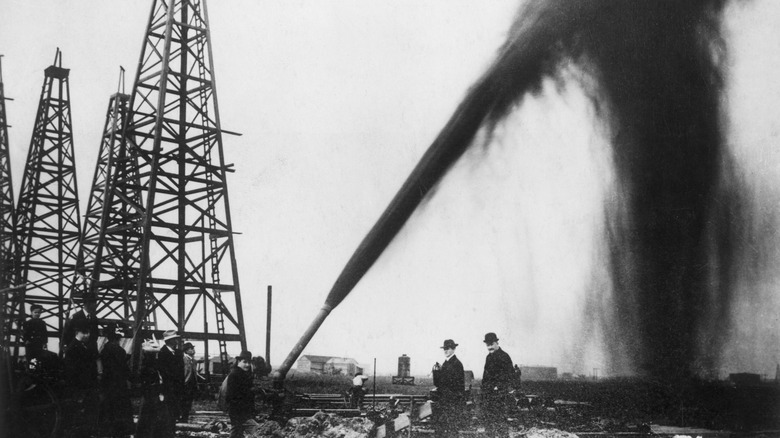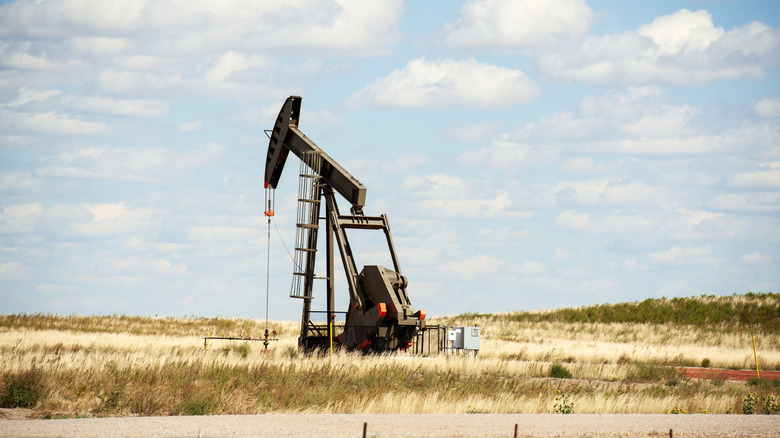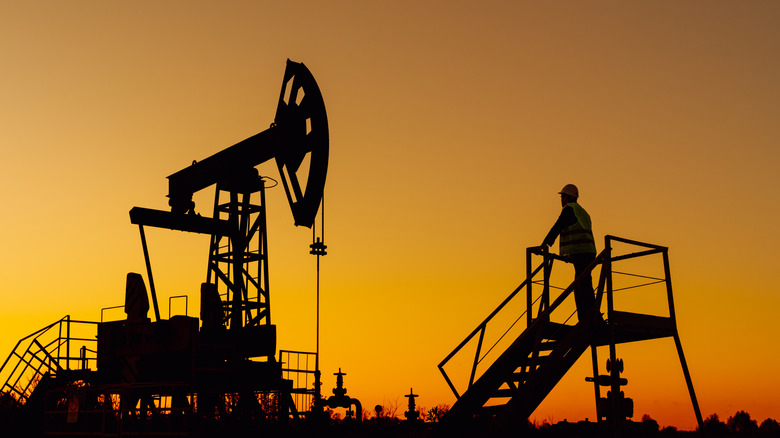Can You Keep Oil If You Find It On Your Property?
Imagine the scene: you've just bought your first home, a humble but handsome old house with a porch and picket fence, with a nice garden in need of a little love and plenty of land around the back where you could start thinking about growing a few crops, fulfilling a lifelong dream of eating fresh produce you have grown yourself. You move in, get the interior just so, and then turn your attention to the outdoors. You put on your sun hat, don your gardening boots, and sling your hoe over your shoulder, and as soon as you get on the land, you plunge it into your land, to be greeted by the sight of black tar squirting into the sky. Holy mackerel — you've struck oil!
Okay, maybe it wouldn't go that way, but there are certainly vast swathes of the United States where uncovering oil on one's property might be really possible with the right equipment, in states such as Texas, Oklahoma, and New Mexico. However, does this mean that you are able to simply extract the black gold that your property might contain? It's a complicated question, and it comes down to the simple fact that though you may own the land, you don't necessarily own what's underneath it.
Surface rights vs. mineral rights
The issue simply comes down to what you actually buy when it comes to buying property or deeds to land, and the rights that have been handed over to you during the purchase. There are two types of rights that might be mentioned in a deed: surface rights and mineral rights. They both mean different things, and which of them you have really matters when it comes to whether you would be able to extract oil from your own land or not.
If you buy land or property, you are almost certainly buying surface rights, which are just what they sound like: the rights to what exists on the surface of the property, what is on top of it, and that's it. You don't necessarily own all the land underneath it — though the basement is probably yours — just as you don't own the airspace above.
It is the mineral rights that really matter when it comes to who gets to extract the oil from any particular patch of land. If you check your contract and see that the mineral rights are included, you're in luck — whatever oil exists beneath your land is technically yours, and if there's enough of it down there, you're looking at a sweet oily profit until the reserves run out.
Mineral rights and extraction
If you have the mineral rights and the expertise to start extracting oil from your own land, then there's nothing to stop you getting into gear and start earning your fortune. However, this isn't an option for everybody — as well as expertise, you would also need plenty of start-up capital to get things underway. But there are other options. Those with mineral rights could lease them to an oil company, which could come in with everything in place to extract the oil on your land, earning you a royalty of up to 25%. Or else you could sell the rights outright, resulting in a large cash lump sum, but not necessarily getting the best value for what could potentially lie beneath your land.
But what if you don't have the mineral rights to your land? Well, you have a couple of options there, too. You can find out who owns the mineral rights and see if you can purchase them or lease them from the owner to begin your own extraction. Then again, the chances are that the mineral rights are owned by an oil company who acquired them somewhere down the line, in which case you could contact them to try and work out an extraction deal that would see you turn a profit for allowing drilling on your land — as long as you don't mind the controversy. Oil production can be dangerous for the environment, as shown by the Deepwater Horizon Oil Spill, which remains one of the worst ecological disasters in world history.


